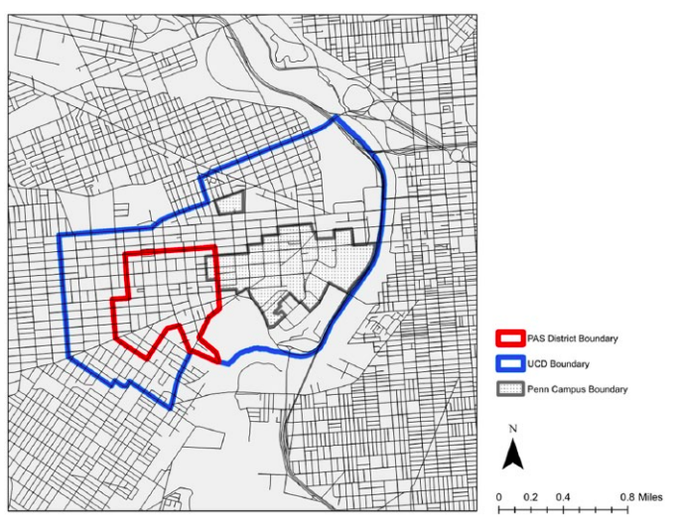Super-expropriation, elementary schools, and UPenn
Sometimes K-12 & higher education look disconnected, particularly when it comes to money. But in Philly, the University of Pennsylvania has done and is doing some wild stuff with elementary schools in its neighborhood. It's a great case study of neoliberal urban development, dispossession, and school funding in racial capitalism.
The story starts in West Philly. People hear that and sing the song from Fresh Prince of Bel Air (Will Smith attended Overbrook schools here). Overbrook is north of University City, where UPenn--indeed, acting like a feudal Prince--has flip-turned the area upside down.
UPenn has done this through a suite of real estate acquisitions and programs. One was helping with housing costs when Penn employees buy houses in West Philly. They have an office devoted to Homeownership Services. My house for example was owned by a facilities worker at Penn, a black woman who was part of that program and appreciated it in our conversations about the house and her time here.
A recent study by Meagan Ehlenz in the Urban Affairs Review notes that overall, Penn's West Philly Initiatives (WPI) in the University City District "improved but did not gentrify" between 1990-2010. But there's a lot more to that story.
The University City District (UCD) is big. Ehlenz has a helpful map below. The UCD is blue. There was improvement there. But see that red area within it? Ehlenz says that that smaller part saw significant gentrification. Those are the catchment lines for an elementary school.
Ehlenz finds "subtle improvements" in UCD in terms of population shifts and real estate patterns like pricing and vacancy across racial difference. She correlates these with Penn investments.
But the real story here is the heavy gentrification between the blue and red areas above. That red area is the catchment for what has become known as Penn Alexander School (PAS), once known as Sadie Alexander.
Last year, PAS was recognized nationally as a Blue Ribbon school. This isn't a coincidence. Penn provides $1300 per pupil each year to PAS. The program started in 1991 as part of Penn's WPI. It's the flagship in Penn's University-Assisted Community Schools program. This money has had dramatic impacts. Historically, Ehlenz finds that the "neighborhood outside of the PAS is characterized by continued decline—median household incomes fell by 30% between 1990 and 2010 and its poverty rate exceeded the city’s, as well as the PAS area’s, by approximately 10% in 2010." This "Penn Alexander Effect" has only increased since 2010 and has impacts throughout the local economy.
In 2000, when Penn started with the investment at PAS, average property value in the catchment was $121,000. In 2021, it was more than $720,000. Penn has relationships with several other elementary schools in West Philly (Comegys, Hamilton, Mitchell, Lea), but PAS is the only one that has received sustained per pupil money. Here are some other differences between PAS and these other schools in district data.
PAS serves way more white kids. It has 45% whereas other schools like Comegys, Mitchell, Harrington, and Hamilton has 0-1% white students.
PAS serves way fewer economically disadvantaged students.
PAS has way fewer facilities needs based on a 2017 assessment. These updated numbers confirm Ehlenz's historical finding: Penn's investment in PAS creates drastic differences within West Philly that fall along race/class lines. Those differences exist even between schools that Penn works with.
There's been a ton of organizing around the issues these policies reveal. Lots of energy has gone towards pressuring Penn to pay property taxes to the school district, which it doesn't. Through a city charter law, Penn--as a non-profit--is exempt. Penn student researcher Jessica Lim sums up the situation well in her work looking at Penn's work with schools in West Philly: "the University foregoes annual property tax payments of $20.2 million to the City and $24.6 million to the School District.
As Penn looks to invest in another elementary school (Lea) following its work with PAS, there's renewed energy towards organizing on these lines, but this time from parents in the catchment who want everyone to benefit not just them.
Let's call this what it is: Penn super-expropriates resources from its community by not paying taxes and then launders that expropriation through its generous-looking but very uneven relationships with elementary schools, the impact of which reverberates economically. So rather than a great program with some unfortunate side-effects, Penn's relationship with elementary schools is a paradigm case of its overall role and impact in Philadelphia. It is a taker, not a giver.



